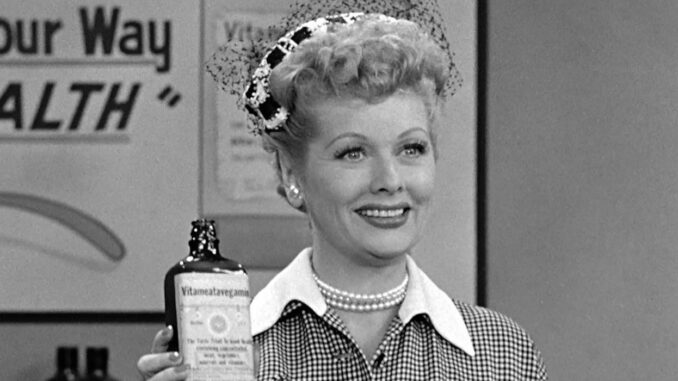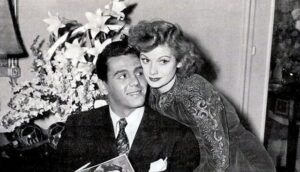
Introduction: The Revolutionary Comedy That Changed TV Forever
When you hear the name Lucille Ball, one thing comes to mind: laughter. But did you know she wasn’t just the queen of comedy? She was also a pioneer, shattering barriers for women in television and reshaping how comedy was done. ‘I Love Lucy’ wasn’t just a sitcom; it was a phenomenon that altered the entertainment industry. This is the story of how Lucille Ball dared to dream bigger, took risks, and created one of the most beloved shows of all time.
The Road to Stardom: Who Was Lucille Ball?
Humble Beginnings in Jamestown
Born in 1911 in Jamestown, New York, Lucille Ball didn’t have an easy start. Growing up in a working-class family, she faced her share of struggles. But her love for performing was evident early on.
The Hollywood Struggle
Lucille’s career in Hollywood didn’t take off overnight. For years, she juggled small film roles and modeling gigs, earning the nickname “Queen of the Bs” for her work in B-movies. However, Lucille’s comedic timing and undeniable charisma set her apart from the crowd.
A Power Couple in the Making
Meeting Desi Arnaz
Lucille met Cuban musician Desi Arnaz in 1940, and sparks flew immediately. The couple married later that year, forming not just a romantic partnership but also a business and creative powerhouse.
The Pitch for ‘I Love Lucy’
When Lucille and Desi pitched the idea of starring in a TV show together, executives were skeptical. A real-life married couple playing a couple on TV? It was unheard of! And a Cuban lead actor? Hollywood didn’t think audiences were ready. But Lucille and Desi believed otherwise.

Breaking Barriers: Lucille Ball’s Vision for Comedy
A Woman in Charge
Lucille Ball wasn’t just the star of ‘I Love Lucy’; she was its driving force. As one of the first women to own a production company (Desilu Productions), she played a pivotal role in shaping the show’s creative direction.
The First Interracial Couple on TV
Casting Desi Arnaz as her on-screen husband wasn’t just personal; it was groundbreaking. At a time when representation was almost non-existent, Lucille’s decision paved the way for more inclusive storytelling.
Pregnancy on Primetime
Lucille’s real-life pregnancy during the second season was written into the show—something unheard of in the conservative 1950s. The episode where Lucy gives birth remains one of the highest-rated TV episodes of all time.
Behind the Scenes of a Comedy Revolution
The Multicam Innovation
‘I Love Lucy’ was one of the first shows to use a three-camera setup for filming, a technique still used today in sitcoms. This method, combined with live audience reactions, brought a unique energy to every episode.
Reruns: A Happy Accident
Lucille and Desi made a smart business decision by filming episodes on high-quality film, allowing for reruns—a concept that didn’t exist before ‘I Love Lucy’. This move changed TV syndication forever.
The Chemistry That Made ‘I Love Lucy’ a Hit
Lucille’s Physical Comedy Genius
Lucille Ball’s slapstick routines are legendary. Who can forget the iconic grape-stomping scene or the chocolate factory chaos? Her ability to blend physical humor with relatable storytelling was unparalleled.
Supporting Cast Perfection
The chemistry between Lucille, Desi, and co-stars Vivian Vance (Ethel Mertz) and William Frawley (Fred Mertz) added another layer of magic. Their comedic timing and camaraderie made the show feel authentic.
Cultural Impact: How ‘I Love Lucy’ Changed Television
Women in Comedy
Lucille Ball proved that women could lead a show, be hilarious, and draw massive audiences. She opened doors for countless female comedians who followed in her footsteps.
Global Popularity
‘I Love Lucy’ wasn’t just an American hit; it became a global sensation, loved by audiences worldwide for its universal humor and heartwarming storytelling.
Timeless Appeal
Even decades later, the show remains relevant. Its themes of love, friendship, and chasing dreams continue to resonate with viewers.
The Legacy of Lucille Ball and ‘I Love Lucy’
Desilu Productions: A Media Empire
After the show ended, Lucille became the head of Desilu Productions, producing iconic shows like Star Trek and The Untouchables. Her influence extended far beyond comedy.
Hall of Fame Status
Lucille Ball’s contributions to television have earned her countless accolades, from Emmys to the Presidential Medal of Freedom. She’s more than a star—she’s a legend.
An Enduring Icon
To this day, Lucille Ball’s influence is felt in every corner of the entertainment industry. She broke barriers, smashed stereotypes, and proved that laughter truly is universal.
Conclusion
Lucille Ball wasn’t just funny—she was fearless. Her journey from a struggling actress to the queen of television is a testament to her talent, vision, and determination. ‘I Love Lucy’ wasn’t just a sitcom; it was a groundbreaking force that forever changed the face of television. Lucille Ball’s legacy lives on, inspiring generations of dreamers and proving that with a little laughter and a lot of courage, anything is possible.
FAQs
1. What made ‘I Love Lucy’ so groundbreaking?
‘I Love Lucy’ was revolutionary for its use of a three-camera setup, its portrayal of an interracial couple, and its inclusion of pregnancy in the storyline—unprecedented moves in the 1950s.
2. How did Lucille Ball influence women in television?
Lucille Ball was one of the first women to own a production company, paving the way for future female creatives in Hollywood.
3. Why was the casting of Desi Arnaz significant?
Desi Arnaz’s casting challenged racial stereotypes and introduced diverse representation to American television.
4. What innovations did Desilu Productions bring to TV?
Desilu Productions introduced the concept of reruns, pioneered multicamera filming techniques, and produced iconic shows like Star Trek.
5. Is ‘I Love Lucy’ still relevant today?
Absolutely! The show’s humor, heart, and relatable themes make it a timeless classic beloved by audiences of all ages.